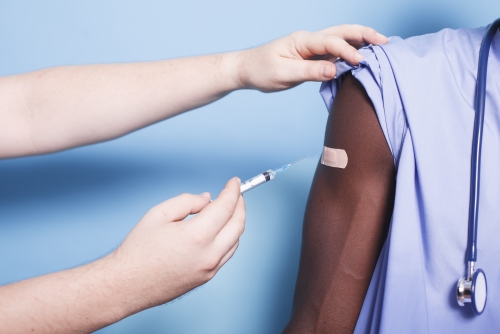A recent report from Bloomberg has shed light on the increasing interest of Gulf investment funds, including those from Bahrain, in financing global healthcare initiatives. This shift in focus comes at a crucial time when traditional donors from European countries are facing challenges in sustaining their support for the healthcare sector. The report indicates that at least five Gulf funds are planning to invest nearly $100 billion in health-related companies and initiatives by the end of next year, supporting critical efforts such as childhood vaccination programs and research into treatments for common diseases that affect millions each year.
The report also highlights the struggles faced by traditional donors, including countries like Germany, the UK, and France, due to economic and climate crises, leading to reduced spending on health initiatives. One example cited is the Global Alliance for Vaccines and Immunization (GAVI), which helps provide vaccines for diseases like cholera and measles in poorer nations. GAVI has only raised about $9 billion of its required funding, representing just one-third of its needs. Gulf countries, including Bahrain, have pledged $267 million to GAVI initiatives, illustrating their growing role as financiers of international humanitarian and health projects.
While Gulf countries are still considered small donors compared to Western nations, they are increasingly becoming crucial players in filling funding gaps left by decreasing Western support. Sania Nishtar, CEO of GAVI, highlighted the financial constraints faced by traditional donors and emphasized the importance of expanding the base of supporters to include Gulf nations such as Bahrain, Saudi Arabia, the UAE, Kuwait, and Qatar. As GCC investment funds increase their commitments to global health initiatives, their contributions are expected to play a vital role in addressing public health challenges worldwide.
The involvement of Gulf investment funds in financing global healthcare initiatives is expected to have a significant impact on addressing pressing public health issues. With plans to invest nearly $100 billion by the end of next year, these funds are set to support vital efforts such as childhood vaccination programs and research into treatments for diseases that affect millions annually. This increased investment from Gulf countries, including Bahrain, comes at a critical time when traditional donors from European nations are facing challenges in sustaining their support for the healthcare sector due to economic and climate crises.
The report also highlights the struggles faced by traditional donors like Germany, the UK, and France in maintaining their funding for health initiatives. For example, the Global Alliance for Vaccines and Immunization (GAVI), which helps provide vaccines for diseases like cholera and measles in poorer nations, has only raised about $9 billion of its required funding, representing just one-third of its needs. In contrast, Gulf countries, including Bahrain, have pledged $267 million to GAVI initiatives, demonstrating their increasing role in financing international humanitarian and health projects.
As GCC investment funds ramp up their commitments to global health initiatives, they are filling funding gaps left by decreasing Western support, according to the report. Gulf nations, including Bahrain, are becoming crucial players in financing international health projects, with plans to invest nearly $100 billion by the end of next year. Sania Nishtar, CEO of GAVI, stressed the importance of expanding the base of supporters to include Gulf nations like Bahrain, Saudi Arabia, the UAE, Kuwait, and Qatar. As Gulf countries step up their involvement in funding global healthcare initiatives, their contributions are expected to play a vital role in addressing public health challenges worldwide.




































